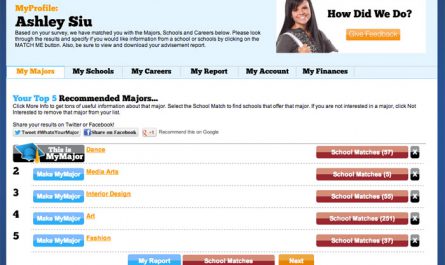Hospitality Management prepares individuals to serve as general managers and directors of hospitality operations on a system-wide basis, including both travel arrangements and promotion and the provision of traveler facilities. Includes instruction in principles of operations in the travel and tourism, hotel and lodging facilities, food services, and recreation facilities industries; hospitality marketing strategies; hospitality planning; management and coordination of franchise and unit operations; business management; accounting and financial management; hospitality transportation and logistics; and hospitality industry policies and regulations.
Is Hospitality Management Major right for you? Take the free College Major Quiz to find out. Start Now >
What kind of students major in Hospitality Management?
Students interested in Hospitality Management or hospitality administration must be interested in management, generally, but have a special interest in the growing service industry. Good person-to-person communication and general people skills are a must for effective leadership and managerial positions. Students in this major will also take many courses that apply for a business major as well.

Colleges offering a Hospitality Management Major:
There are over 360 colleges and universities that offer a Hospitality Management program in the United States. Search for your college here
Degree Options:





Bachelor’s Degree or Some College usually needed for this career. A MS or PhD would be required if you wish to conduct field research or become an educator, but this is not required for career practitioners in the private sector.
What courses do most students take in college?
The required and elective courses you would take for Hospitality Management majors vary considerably among institutions. Courses are listed here that are illustrative of the breadth of topics you are likely to experience were you to major in this field.
- Finance
- Culinary Theory and Practice
- Financial Accounting
- Hospitality Financial Management
- Human Resources Management
- Interpersonal Skills
- Introduction to Lodging
- Managerial Accounting
- Organizational Behavior
- Strategic Management
Related Majors to Hospitality Management:
- Casino Management
- Credit Management
- Hospitality Administration/Management
- Hotel, Motel, and Restaurant Management
- Meeting and Event Planning
- Resort Management
- Restaurant/Food Services Management
- Tourism and Travel Services Management
- Culinary Science Major
- Business Management Major
What are your future career options as a Hospitality Management Major?
- Food Service Managers
- Lodging Managers
- Farmers, Ranchers, and Other Agricultural Managers
- Nursery and Greenhouse Managers
- Farm and Ranch Managers
- Aquacultural Managers
- Construction Managers
- Education Administrators, Preschool and Childcare Center/Program
- Education Administrators, Elementary and Secondary School
- Education Administrators, Postsecondary
- Education Administrators, All Other
- Distance Learning Coordinators
- Fitness and Wellness Coordinators
- Architectural and Engineering Managers
- Biofuels/Biodiesel Technology and Product Development Managers
- Funeral Service Managers
- Gaming Managers
What does a Hospitality Manager do in their day to day career?
- Review work procedures and operational problems to determine ways to improve service, performance, or safety.
- Monitor food preparation methods, portion sizes, and garnishing and presentation of food to ensure that food is prepared and presented in an acceptable manner.
- Establish standards for personnel performance and customer service.
- Investigate and resolve complaints regarding food quality, service, or accommodations.
- Monitor compliance with health and fire regulations regarding food preparation and serving, and building maintenance in lodging and dining facilities.
- Schedule staff hours and assign duties.
- Schedule and receive food and beverage deliveries, checking delivery contents to verify product quality and quantity.
- Count money and make bank deposits.
- Perform some food preparation or service tasks such as cooking, clearing tables, and serving food and drinks when necessary.
- Maintain food and equipment inventories, and keep inventory records.
- Order and purchase equipment and supplies.
- Organize and direct worker training programs, resolve personnel problems, hire new staff, and evaluate employee performance in dining and lodging facilities.
- Arrange for equipment maintenance and repairs, and coordinate a variety of services such as waste removal and pest control.
- Coordinate assignments of cooking personnel to ensure economical use of food and timely preparation.
- Monitor budgets and payroll records, and review financial transactions to ensure that expenditures are authorized and budgeted.
- Keep records required by government agencies regarding sanitation, and food subsidies when appropriate.
- Record the number, type, and cost of items sold to determine which items may be unpopular or less profitable.
- Test cooked food by tasting and smelling it to ensure palatability and flavor conformity.
- Plan menus and food utilization based on anticipated number of guests, nutritional value, palatability, popularity, and costs.
- Assess staffing needs, and recruit staff using methods such as newspaper advertisements or attendance at job fairs.
- Review menus and analyze recipes to determine labor and overhead costs, and assign prices to menu items.
- Estimate food, liquor, wine, and other beverage consumption to anticipate amounts to be purchased or requisitioned.
- Establish and enforce nutritional standards for dining establishments based on accepted industry standards.
- Create specialty dishes and develop recipes to be used in dining facilities.
- Take dining reservations.
- Greet guests, escort them to their seats, and present them with menus and wine lists.
- Schedule use of facilities or catering services for events such as banquets or receptions, and negotiate details of arrangements with clients.
- Monitor employee and patron activities to ensure liquor regulations are obeyed.
What work activities are required of most Hospitality Management?
| Importance | Activities |
|---|---|
| Making Decisions and Solving Problems – Analyzing information and evaluating results to choose the best solution and solve problems. | |
| Training and Teaching Others – Identifying the educational needs of others, developing formal educational or training programs or classes, and teaching or instructing others. | |
| Getting Information – Observing, receiving, and otherwise obtaining information from all relevant sources. | |
| Performing for or Working Directly with the Public – Performing for people or dealing directly with the public. This includes serving customers in restaurants and stores, and receiving clients or guests. | |
| Guiding, Directing, and Motivating Subordinates – Providing guidance and direction to subordinates, including setting performance standards and monitoring performance. | |
| Organizing, Planning, and Prioritizing Work – Developing specific goals and plans to prioritize, organize, and accomplish your work. | |
| Resolving Conflicts and Negotiating with Others – Handling complaints, settling disputes, and resolving grievances and conflicts, or otherwise negotiating with others. | |
| Developing and Building Teams – Encouraging and building mutual trust, respect, and cooperation among team members. | |
| Communicating with Supervisors, Peers, or Subordinates – Providing information to supervisors, co-workers, and subordinates by telephone, in written form, e-mail, or in person. | |
| Coaching and Developing Others – Identifying the developmental needs of others and coaching, mentoring, or otherwise helping others to improve their knowledge or skills. |
Required skills for most Hospitality Management:
| Importance | Skills |
|---|---|
| Service Orientation – Actively looking for ways to help people. | |
| Coordination – Adjusting actions in relation to others’ actions. | |
| Speaking – Talking to others to convey information effectively. | |
| Critical Thinking – Using logic and reasoning to identify the strengths and weaknesses of alternative solutions, conclusions or approaches to problems. | |
| Monitoring – Monitoring/Assessing performance of yourself, other individuals, or organizations to make improvements or take corrective action. | |
| Social Perceptiveness – Being aware of others’ reactions and understanding why they react as they do. | |
| Time Management – Managing one’s own time and the time of others. | |
| Management of Personnel Resources – Motivating, developing, and directing people as they work, identifying the best people for the job. | |
| Active Listening – Giving full attention to what other people are saying, taking time to understand the points being made, asking questions as appropriate, and not interrupting at inappropriate times. | |
| Active Learning – Understanding the implications of new information for both current and future problem-solving and decision-making. |
Required knowledge for most Hospitality Management:
| Importance | Knowledge |
|---|---|
| Customer and Personal Service – Knowledge of principles and processes for providing customer and personal services. This includes customer needs assessment, meeting quality standards for services, and evaluation of customer satisfaction. | |
| Administration and Management – Knowledge of business and management principles involved in strategic planning, resource allocation, human resources modeling, leadership technique, production methods, and coordination of people and resources. | |
| Production and Processing – Knowledge of raw materials, production processes, quality control, costs, and other techniques for maximizing the effective manufacture and distribution of goods. | |
| Education and Training – Knowledge of principles and methods for curriculum and training design, teaching and instruction for individuals and groups, and the measurement of training effects. | |
| Personnel and Human Resources – Knowledge of principles and procedures for personnel recruitment, selection, training, compensation and benefits, labor relations and negotiation, and personnel information systems. | |
| Sales and Marketing – Knowledge of principles and methods for showing, promoting, and selling products or services. This includes marketing strategy and tactics, product demonstration, sales techniques, and sales control systems. | |
| Food Production – Knowledge of techniques and equipment for planting, growing, and harvesting food products (both plant and animal) for consumption, including storage/handling techniques. | |
| English Language – Knowledge of the structure and content of the English language including the meaning and spelling of words, rules of composition, and grammar. | |
| Public Safety and Security – Knowledge of relevant equipment, policies, procedures, and strategies to promote effective local, state, or national security operations for the protection of people, data, property, and institutions. | |
| Transportation – Knowledge of principles and methods for moving people or goods by air, rail, sea, or road, including the relative costs and benefits. |
Hospitality Management work styles and traits:
| Importance | Styles |
|---|---|
| Integrity – Job requires being honest and ethical. | |
| Dependability – Job requires being reliable, responsible, and dependable, and fulfilling obligations. | |
| Leadership – Job requires a willingness to lead, take charge, and offer opinions and direction. | |
| Cooperation – Job requires being pleasant with others on the job and displaying a good-natured, cooperative attitude. | |
| Stress Tolerance – Job requires accepting criticism and dealing calmly and effectively with high stress situations. |
There are many professional associations to further your career based on your specific career path:
View list of Professional Associations & Organizations for Hospitality Management Majors
Gaining experience and internships is vital to receiving a job after graduation. Listen to a few student’s stories about their education and how to get involved on campus and in the private sector:




